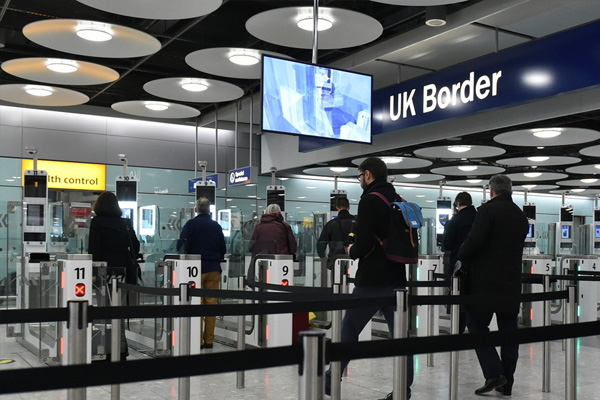Border Force personnel at Heathrow have initiated a four-day strike in response to changes in their working conditions. This action is expected to significantly impact operations at the airport.
With the involvement of over 300 officers, the strike affects passport checks across multiple terminals. It stems from unresolved disputes over new management policies, underscoring the friction between staff and the Home Office.
Background of the Strike
The commencement of a four-day strike at Heathrow Airport by Border Force staff has raised significant concerns for travellers. This industrial action is set to involve over 300 officers operating across Terminals 2, 3, 4, and 5. The main contention lies in adjustments to working conditions, initiated by the management but opposed by the staff and their union. Such strikes are not uncommon; labour disputes have often highlighted the friction between airport authorities and their workforce.
Union’s Stance and Demands
The Public and Commercial Services (PCS) union has vocalised its members’ grievances, pinpointing the inflexibility introduced in the new roster as a core issue. Fran Heathcote, the union’s general secretary, mentioned, “It’s disappointing that despite talks last week, the Home Office is not prepared to grant any flexibility.” This rigid stance from management has led to increased dissatisfaction and subsequent strike actions by the dedicated and experienced Border Force staff.
Impact on Travellers
The anticipated disruption in passport checks is a primary concern for inbound travellers during this period. The union expects these actions to interfere significantly with the usual processing times. As Lisa Webb from the consumer group Which? advises, passengers are urged to prepare for extended waiting times and potential delays. It’s crucial for passengers to proactively communicate with airport staff if they face tight schedules, as security personnel might accommodate urgent requests.
Home Office Perspective
From the Home Office’s standpoint, the changes proposed aim to align the working patterns of Heathrow’s Border Force staff with those at major ports. A spokesperson expressed disappointment over the union’s choice to strike but indicated an openness to dialogue, highlighting that the modifications would bring better predictability for employees and enhance service quality. Despite the strike, passengers are encouraged to stay informed through operator updates before travelling.
The Home Office has opted not to employ a recently enacted law designed to secure a minimum service level during industrial actions. This decision underscores a commitment to seeking a resolution through discussion rather than enforcement. The department remains steadfast in its plans to implement these unpopular changes, hoping to achieve long-term benefits for the operational structures at Heathrow.
Contingency Plans at Heathrow
Heathrow Airport has declared that contingency arrangements are in place to mitigate any adverse effects on passengers’ journeys. While the airport is prepared to handle disruptions, the extent to which these plans will succeed remains uncertain. The airport management is optimistic about its ability to minimise the impact on passenger flow and maintain service standards despite ongoing strikes.
Travellers have been advised to ensure comprehensive travel insurance from booking time, as some policies do not cover strike-related disruptions. Lisa Webb emphasises the importance of verifying insurance coverage specifics since strike actions by airport staff may not be compensated under all travel policies. This preparation is pivotal for avoiding unforeseen costs and ensuring smoother travel experiences.
Recent similar strikes have demonstrated the potential for considerable disruption. Past incidents have led to delays and public frustration, underscoring the importance of effective contingency planning. The ability to maintain airport efficiency during such events is critical, as demonstrated by other airports that have faced similar challenges worldwide.
Public Reaction and Guidance
Public reactions to the scheduled strike vary, with some expressing support for the workers’ cause, while others voice concerns over travel disruptions. Social media platforms have become a forum for both grievances and support. Travellers are advised to monitor these platforms for real-time updates and community-shared insights that might assist in navigating the strike’s impact.
The guidance issued to travellers underscores the necessity of proactive communication and planning. Passengers should engage with their airlines for possible rebooking options and regularly check for travel advisories. This strategic approach enables better handling of the potential complications arising from the strike action and ensures a more predictable travel experience.
Conclusion
The impending strike underscores ongoing tensions between Border Force staff and management at Heathrow. While efforts to negotiate remain on the table, the immediate impact on travellers is a pressing concern. The situation highlights the necessity for dialogue and flexibility from all parties involved to reach a sustainable resolution. Travellers, meanwhile, are encouraged to stay informed and prepared to mitigate the strike’s effects.
The Heathrow strike by Border Force staff reflects ongoing industrial tensions that could lead to prolonged disruptions.
Effective communication between travellers and authorities remains crucial to navigate potential complications and ensure smoother travel experiences.

